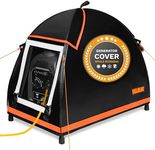Buying Guide for the Best Solar And Gas Generator
Choosing the right solar and gas generator involves understanding your power needs, the environment in which you'll be using the generator, and the balance between sustainability and convenience. Solar generators are eco-friendly and quiet, making them ideal for long-term use and in areas with ample sunlight. Gas generators, on the other hand, are powerful and reliable, especially in situations where immediate and high power output is required. By evaluating key specifications, you can determine which type of generator best suits your needs and ensure you have a reliable power source when you need it most.Power Output (Wattage)Power output, measured in watts (W), indicates how much electricity the generator can produce. This is crucial because it determines what and how many devices you can power simultaneously. For light use, such as charging small electronics, a generator with 200-500 watts may suffice. For more demanding needs, like running household appliances or power tools, look for generators with 1000-3000 watts or more. Assess your power needs by listing the devices you plan to use and their wattage requirements, then choose a generator that can handle the total load.
Fuel TypeGenerators can be powered by solar energy, gasoline, propane, or a combination of these. Solar generators use solar panels to convert sunlight into electricity, making them eco-friendly and quiet but dependent on sunlight availability. Gasoline generators are powerful and can run continuously as long as fuel is available, but they produce noise and emissions. Propane generators offer a cleaner alternative to gasoline and can be stored for longer periods. Consider your access to fuel, environmental impact, and noise tolerance when choosing the fuel type.
Battery CapacityFor solar generators, battery capacity, measured in watt-hours (Wh), indicates how much energy the battery can store. This is important for determining how long the generator can power your devices without sunlight. Smaller capacities (200-500 Wh) are suitable for short-term use or light loads, while larger capacities (1000 Wh or more) are better for extended use or higher power demands. Evaluate your usage patterns and the duration you need power to select an appropriate battery capacity.
PortabilityPortability refers to the ease with which you can transport the generator. This is particularly important if you plan to use the generator for camping, outdoor events, or as a mobile power source. Smaller, lightweight generators are easier to carry but may offer lower power output. Larger generators provide more power but can be heavy and cumbersome. Consider how often and where you will be moving the generator to find a balance between power and portability.
Noise LevelNoise level, measured in decibels (dB), indicates how loud the generator is during operation. This is important for maintaining a peaceful environment, especially in residential areas or during outdoor activities. Solar generators are typically very quiet, while gas generators can be quite noisy. If noise is a concern, look for generators with lower dB ratings or consider using solar generators. Assess your tolerance for noise and the setting in which you'll use the generator to choose an appropriate noise level.
Run TimeRun time refers to how long the generator can operate on a full tank of fuel or a fully charged battery. This is crucial for ensuring continuous power during extended outages or long events. Gas generators often have longer run times, ranging from several hours to a full day, depending on fuel capacity and load. Solar generators' run times depend on battery capacity and sunlight availability. Determine how long you need the generator to run without interruption and choose a model that meets those requirements.
Charging TimeCharging time is the duration it takes to fully recharge the generator's battery. For solar generators, this depends on the solar panel efficiency and sunlight conditions, while gas generators typically don't have this concern as they run on fuel. Faster charging times are beneficial for ensuring the generator is ready to use when needed. Consider how quickly you need the generator to be operational again after depletion and choose a model with an appropriate charging time.
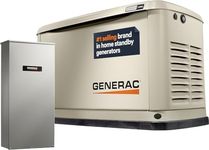
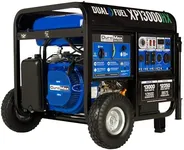

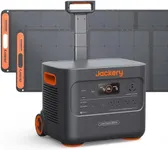


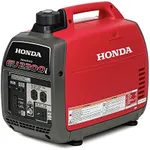
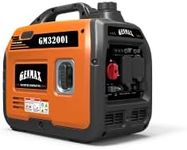
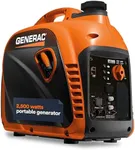

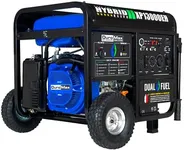
![[Upgraded Version] ALLPOWERS S2000 Portable Power Station 2000W (Peak 4000W) MPPT Solar Generator 1500Wh Backup Battery with 4 AC Outlets for Outdoor Camping RV Emergency Off-Grid](https://images-proxy.bestreviews.guide/RKciUpoEpXP6FG5NDwMBUKV-gKk=/0x150/https://m.media-amazon.com/images/I/51n9OTptdIL._AC_CX679_.jpg)

